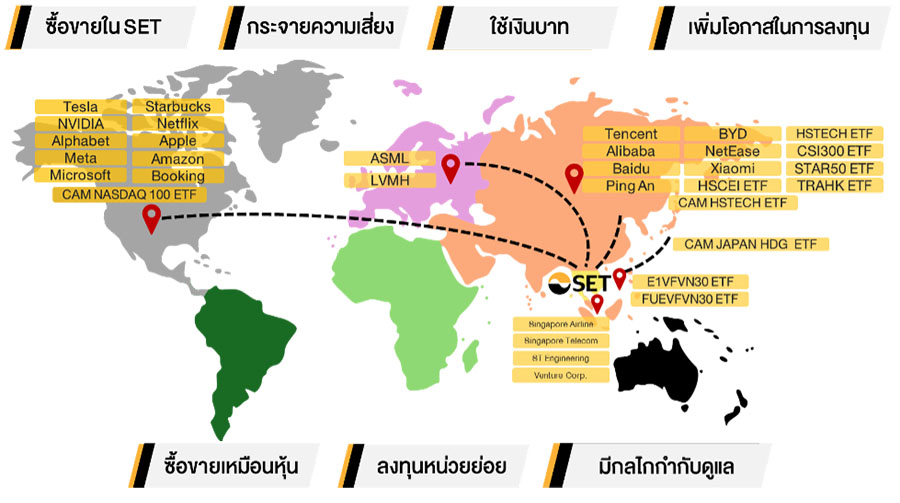- Details
- Category: งานวิจัยเศรษฐกิจ
- Published: Friday, 18 May 2018 14:07
- Hits: 1206

ข้อกำหนดกฎเกณฑ์ต่างๆ และความรู้สึกของผู้บริโภคทำให้อุตสาหกรรมต้องหันมาทบทวนนโยบายข้อมูล โดยลดปริมาณข้อมูลส่วนบุคคลที่เก็บไว้ลง 80%
ลการวิจัยล่าสุดของไอบีเอ็มชี้ให้เห็นว่าเกือบ 60% ขององค์กรที่สำรวจ มองข้อบังคับความคุ้มครองข้อมูลส่วนบุคคลของผู้บริโภค (General Data Protection Regulation: GDPR) เป็นโอกาสในการปรับปรุงนโยบายข้อมูลส่วนบุคคล การรักษาความปลอดภัย การจัดการข้อมูล หรือเป็นสิ่งกระตุ้นให้เกิดโมเดลธุรกิจแบบใหม่ มากกว่าที่จะเป็นเพียงประเด็นกฎเกณฑ์ที่ต้องปฏิบัติหรือเป็นอุปสรรคต่อธุรกิจ
การศึกษาชี้ให้เห็นว่าบริษัทส่วนใหญ่หันมาเพิ่มความเข้มงวดเกี่ยวกับข้อมูลที่องค์กรจัดเก็บหรือบริหารจัดการมากขึ้นเพื่อลดความเสี่ยงต่างๆ โดย 70% กำจัดข้อมูลก่อนที่จะถึงเวลาที่กำหนดไว้ เพื่อให้สอดคล้องกับข้อบังคับดังกล่าว
การเตรียมพร้อมสำหรับ GDPR ของบริษัทต่างๆ เกิดขึ้นหลังจากการที่กลุ่มผู้บริโภคเริ่มหันมาตรวจสอบการจัดการข้อมูลส่วนบุคคลของธุรกิจต่างๆ มากขึ้น โดยการสำรวจความคิดเห็นอีกชุดจากผู้บริโภค 10,000 คนโดยแฮร์ริส โพล ในนามของไอบีเอ็ม พบว่ามีผู้บริโภคชาวอเมริกันเพียง 20% เท่านั้นที่เชื่ออย่างเต็มที่ว่าองค์กรต่างๆ ที่พวกเขามีปฏิสัมพันธ์ด้วยจะรักษาข้อมูลส่วนบุคคลของพวกเขาไว้
ช่วงสัปดาห์ก่อนถึงวันที่ 25 พฤษภาคม 2561 ที่ข้อบังคับดังกล่าวจะมีผลบังคับใช้ สถาบันการศึกษาคุณค่าทางธุรกิจ (Institute for Business Value:IBV) ของไอบีเอ็ม ได้สำรวจผู้นำธุรกิจกว่า 1,500 คนที่รับผิดชอบการปฏิบัติตามข้อกำหนดของ GDPR ขององค์กรต่างๆ ทั่วโลก ผลสำรวจแสดงให้เห็นว่าบริษัทต่างๆ มอง GDPR เป็นโอกาสในการเพิ่มความเชื่อมั่นของลูกค้าและช่วยผลักดันนวัตกรรม กล่าวคือ
• 84% เชื่อว่าหลักฐานที่พิสูจน์ว่าองค์กรปฏิบัติอย่างสอดคล้องกับ GDPR จะช่วยสร้างความแตกต่างในทางบวกในสายตาของผู้บริโภค
• 76% มองว่า GDPR จะสร้างความสัมพันธ์ที่น่าเชื่อถือขึ้นกับเจ้าของข้อมูล (data subjects) อันจะนำสู่โอกาสใหม่ๆ ทางธุรกิจ
• แม้จะมองว่าเรื่องนี้เป็นโอกาส แต่มีองค์กรเพียง 36% เท่านั้นที่เชื่อว่าจะสามารถปฏิบัติให้สอดคล้องกับ GDPR ได้อย่างสมบูรณ์ภายในวันที่ 25 พฤษภาคมนี้
“GDPR จะเป็นหนึ่งในการเปลี่ยนแปลงที่สร้างผลกระทบมากที่สุด ซึ่งจะส่งผลต่อโมเดลธุรกิจในอุตสาหกรรมต่างๆ และกระทบไปยังประเทศนอกกลุ่มสหภาพยุโรปด้วย” นายกิตติพงษ์ อัศวพิชยนต์ รองกรรมการผู้จัดการ ธุรกิจซอฟต์แวร์ บริษัท ไอบีเอ็ม ประเทศไทย จำกัด กล่าว “การเริ่มบังคับใช้ GDPR เกิดขึ้นในช่วงที่ผู้บริโภคขาดความเชื่อมั่นอย่างมากต่อความสามารถของธุรกิจที่จะปกป้องข้อมูลส่วนบุคคลของพวกเขา ปัจจัยเหล่านี้ก่อให้เกิดแรงผลักดันขนานใหญ่ให้องค์กรต้องทบทวนวิธีจัดการกับความรับผิดชอบต่อข้อมูล และเริ่มต้นฟื้นคืนความเชื่อมั่นซึ่งเป็นสิ่งจำเป็นในสภาพเศรษฐกิจที่ขับเคลื่อนด้วยข้อมูลในปัจจุบัน”
GDPR นำสู่การลดปริมาณการรวบรวมและจัดเก็บข้อมูล
สิ่งสำคัญอีกประการที่พบในการวิจัยครั้งนี้ คือการที่องค์กรต่างๆ ใช้ GDPR เป็นโอกาสในการปรับปรุงวิธีจัดการข้อมูลและลดปริมาณข้อมูลที่องค์กรต้องบริหารจัดการ ซึ่งหมายถึงการลดปริมาณข้อมูลที่องค์กรรวบรวม จัดเก็บ และแบ่งปันลงอย่างมากในหลายๆ องค์กร โดยจากผลการศึกษาองค์กรต่างๆ รายงานว่าได้ดำเนินการดังต่อไปนี้เพื่อปฏิบัติตาม GDPR
• 80% กล่าวว่าองค์กรกำลังลดปริมาณข้อมูลส่วนบุคคลที่จัดเก็บ
• 78% กำลังลดจำนวนคนที่ได้รับสิทธิ์เข้าถึงข้อมูลส่วนบุคคล
• 70% กำลังกำจัดข้อมูลที่ไม่จำเป็นต้องใช้อีกต่อไป
ความท้าทายเกี่ยวกับ GDPR จุดบอด และโอกาสในการปฏิรูปทางธุรกิจ
ผลการศึกษาพบว่าปัญหาหลักๆ ที่องค์กรต่างๆ กำลังเผชิญในปัจจุบัน เมื่อต้องปฏิบัติให้สอดคล้องกับ GDPR คือการค้นหาข้อมูลส่วนบุคคลที่อยู่ภายในองค์กร (data discovery) การตรวจสอบความถูกต้องของข้อมูลที่องค์กรรวบรวมและจัดเก็บ รวมถึงการปฏิบัติตามกฎเกณฑ์วิธีการวิเคราะห์และแบ่งปันข้อมูล (data processing principals)
เรื่องอื่นๆ ซึ่งเป็นที่กังวล ได้แก่ การจัดการการเคลื่อนย้ายข้อมูลข้ามพรมแดน และการได้รับความยินยอมจากเจ้าของข้อมูล โดยผู้ตอบแบบสำรวจน้อยกว่าครึ่งหนึ่งบอกว่าได้เตรียมพร้อมสำหรับ GDPR ในด้านเหล่านี้แล้ว
องค์ประกอบที่สำคัญประการหนึ่งของ GDPR คือการกำหนดให้บริษัทต่างๆ ต้องรายงานการละเมิดข้อมูลแก่ผู้กำกับดูแลภายใน 72 ชั่วโมง อย่างไรก็ตาม การศึกษาของ IBV พบว่ามีบริษัทเพียง 31% เท่านั้นที่ตรวจสอบหรือแก้ไขแผนรับมือเหตุการณ์ที่ไม่คาดคิด (Incident Response Plan) เพื่อเตรียมพร้อมสำหรับข้อกำหนดนี้ ซึ่งแสดงให้เห็นจุดบอดของวิธีรับมือกับ GDPR โดยรวมของบริษัทต่างๆ
แม้ว่า จะมีความท้าทาย แต่กลุ่มบริษัท “ผู้นำ” (22%) จะใช้ GDPR เป็นโอกาสในการปฏิรูปธุรกิจอย่างเต็มรูปแบบ ในแง่แนวทางความรับผิดชอบต่อข้อมูลและการบริหารจัดการ กล่าวคือ
• 93% ได้ปรับเปลี่ยนกระบวนการรับมือเหตุการณ์ที่ไม่คาดคิด
• 79% บอกว่าได้เตรียมพร้อมสำหรับการดำเนินการค้นหาข้อมูลและตรวจสอบความถูกต้องของข้อมูล
• 74% บอกว่าได้นำมาตรการด้านการรักษาความปลอดภัยและการออกแบบเกี่ยวกับความปลอดภัยของข้อมูลส่วนบุคคลมาใช้กับผลิตภัณฑ์และบริการใหม่ๆ
วิธีการศึกษาวิจัย
เพื่อให้เข้าใจถึงแนวทางที่องค์กรเตรียมพร้อมสำหรับ GDPR และใช้ GDPR อย่างมีประสิทธิภาพในแง่โอกาสในการปฏิรูปธุรกิจ สถาบันการศึกษาคุณค่าทางธุรกิจของไอบีเอ็ม และอ๊อกซ์ฟอร์ด อีโคโนมิกส์ ได้สำรวจผู้นำที่รับผิดชอบด้าน GDPR จำนวน 1,500 คนใน 34 ประเทศ ซึ่งเป็นตัวแทนของอุตสาหกรรม 15 ประเภทในระหว่างเดือนกุมภาพันธ์ถึงเมษายน 2561 โดยมีการสำรวจความคิดเห็นจากประธานเจ้าหน้าที่ด้านข้อมูลส่วนบุคคล (Chief Privacy Officers) ประธานเจ้าหน้าที่ด้านข้อมูล (Chief Data Officers) ที่ปรึกษาทั่วไป (General Counsels) ประธานเจ้าหน้าที่ด้านการรักษาความปลอดภัยของข้อมูล (Chief Information Security Officers) และเจ้าหน้าที่ด้านการปกป้องข้อมูล (Data Protection Officers) โดยมีการจำแนกกลุ่มผู้นำที่ดูแลด้าน GDPR ผ่านแบบสอบถามที่ใช้หลักเกณฑ์เฉพาะ (ดูจากวิธีการที่พวกเขาตอบชุดคำถามที่กำหนด) และผู้นำที่ดูแลด้าน GDPR ที่มีคุณสมบัติตรงตามหลักเกณฑ์มี 22% จากกลุ่มตัวอย่างทั้งหมด
เกี่ยวกับสถาบันการศึกษาคุณค่าทางธุรกิจของไอบีเอ็ม
สถาบันการศึกษาคุณค่าทางธุรกิจของไอบีเอ็ม ซึ่งเป็นส่วนหนึ่งของกลุ่มธุรกิจไอบีเอ็ม เซอร์วิส ทำหน้าที่พัฒนาข้อมูลเกี่ยวกับความเข้าใจเชิงลึกทางกลยุทธ์ (Strategic Insight) บนพื้นฐานของข้อเท็จจริง สำหรับผู้บริหารธุรกิจระดับสูง ในประเด็นสำคัญๆ ของภาครัฐและภาคเอกชน สำหรับข้อมูลเพิ่มเติมเกี่ยวกับการศึกษาวิจัยของสถาบันการศึกษาคุณค่าทางธุรกิจของไอบีเอ็ม กรุณาติดต่อ iibv@us.ibm.com หรือเยี่ยมชม ibm.com/iibv
ลูกค้ามีหน้าที่รับผิดชอบในการปฏิบัติตามกฎหมายและกฎระเบียบต่างๆ รวมถึงข้อบังคับความคุ้มครองข้อมูลส่วนบุคคลของผู้บริโภค (GDPR) ของสหภาพยุโรป เป็นความรับผิดชอบของลูกค้าแต่เพียงผู้เดียวในการรับคำแนะนำจากเจ้าหน้าที่ให้คำปรึกษาด้านกฎหมายที่มีอำนาจหน้าที่และความรู้ความสามารถ ในการกำหนดและตีความกฎหมายและระเบียบใดๆ ที่เกี่ยวข้องซึ่งอาจส่งผลกระทบต่อธุรกิจของลูกค้า และการดำเนินการใดๆ ที่ลูกค้าต้องปฏิบัติเพื่อให้สอดคล้องกับกฎหมายและกฎระเบียบดังกล่าว ผลิตภัณฑ์ บริการ และความสามารถอื่นๆ ที่ระบุในที่นี้ไม่ได้เหมาะสมสำหรับสถานการณ์ของลูกค้าทุกราย และอาจมีการจำกัดการใช้งาน ไอบีเอ็มไม่ได้ให้คำแนะนำด้านกฎหมาย บัญชี หรือการตรวจสอบ หรือรับรอง หรือเป็นตัวแทน หรือรับประกันว่าบริการหรือผลิตภัณฑ์ของบริษัท จะทำให้ลูกค้าปฏิบัติสอดคล้องกับกฎหมายหรือกฎระเบียบใดๆ
เรียนรู้เพิ่มเติมเกี่ยวกับขั้นตอนการเตรียมความพร้อมสำหรับ GDPR และการปฏิบัติให้สอดคล้องกับ GDPR ของไอบีเอ็ม รวมถึงบริการเพื่อสนับสนุนให้องค์กรสามารถปฏิบัติตาม GDPR ได้ที่นี่.
IBM Study: Majority of Businesses View GDPR as Opportunity to Improve Data Privacy and Security
Regulation and Consumer Sentiment Causing Industry to Rethink Relationship with Data; 80% Cutting Down on Amount of Personal Data They Keep
A new study from IBM (NYSE: IBM) reveals that nearly 60 percent of organizations surveyed are embracing the General Data Protection Regulation (GDPR) as an opportunity to improve privacy, security, data management or as catalyst for new business models, rather than simply a compliance issue or impediment.
To reduce their exposure, the study indicated that the majority of companies are being more selective in the data they collect and manage, with 70 percent disposing of data ahead of the deadline for compliance.
Companies' preparation for GDPR comes in the wake of increased scrutiny from consumers on businesses' management of personal data. A separate poll of 10,000 consumers, conducted by the Harris Poll on behalf of IBM, found that only 20 percent of U.S. consumers completely trust organizations they interact with to maintain the privacy of their data.
In the weeks leading up to the May 25th enforcement date, IBM's Institute for Business Value (IBV) surveyed over 1,500 business leaders responsible for GDPR compliance for organizations around the world. The results reveal how companies are approaching GDPR as an opportunity to build further trust with customers and help drive innovation:
• 84 percent believe that proof of GDPR compliance will be seen as a positive differentiator to the public
• 76 percent said that GDPR will enable more trusted relationships with data subjects that will create new business opportunities
• Despite this opportunity, only 36 percent believe they will be fully compliant with GDPR by the May 25 deadline
"GDPR will be one of the biggest disruptive forces impacting business models across industries – and its reach extends far beyond the EU borders," said Kittipong Asawapichayon, Country Manager, Software Group, IBM Thailand Co., Ltd. "The onset of GDPR also comes during a time of huge distrust among consumers toward businesses ability to protect their personal data. These factors together have created a perfect storm for companies to rethink their approach to data responsibility and begin to restore the trust needed in today's data-driven economy."
Cutbacks: GDPR Leading to Reduction of Data Collection and Storage
Another key finding of the study is that organizations are using GDPR as an opportunity to streamline their approach to data and reduce the overall amount of data they are managing. For many organizations, this means vastly cutting down on the amount of data they collect, store and share. According to the new study, organizations reported taking the following actions in response to GDPR:
• 80 percent say they are cutting down on the amount of personal data they keep
• 78 percent are reducing the number of people who have access to personal data
• 70 percent are disposing of data that is no longer needed
GDPR Challenges, Blind Spots, and Transformational Business Opportunities
The study found that the top challenges organizations are currently facing when it comes to GDPR compliance are finding personal data within their organizations (data discovery), ensuring the accuracy of the data they collect and store, as well as complying with rules for how data is analyzed and shared (data processing principals).
Other areas for concern included the handling of cross-border data transfers and getting consent from data subjects, as less than half of respondents said they were prepared for these aspects of GDPR.
One key element of GDPR includes the requirement for companies to report data breaches to regulators within 72 hours. However, the IBV study found that only 31 percent of companies have reexamined or modified their incident response plans to prepare for this requirement, representing a blindspot in companies' overall approach to GDPR.
While challenges remain, a significant sub-set of companies surveyed (22 percent) are using GDPR as a fully transformational business opportunity for how they approach data responsibility and management. Of this "leaders" subset:
• 93 percent have modified their incident response processes
• 79 percent said they were prepared for performing data discovery and ensuring data accuracy
• 74 percent said they were fully implementing security and privacy by design for new products and services
To download the Institute for Business Value report, "The end of the beginning: Unleashing the Transformational Power of GDPR" visit: http://ibm.biz/powerofGDPR.
Methodology
To better understand how organizations were preparing for GDPR and potentially using it as a transformational opportunity, the IBM Institute for Business Value (IBV) and Oxford Economics surveyed 1,500 GDPR leaders in 34 countries, representing 15 industries, between February and April of 2018. Chief Privacy Officers, Chief Data Officers, General Counsels, Chief Information Security Officers and Data Protection Officers were surveyed. To determine the GDPR leader group, respondents were classified using specific criteria (how they answered a select set of questions) and the GDPR leaders who met the criteria comprised 22 percent of the total sample.
About IBM Institute for Business Value
The IBM Institute for Business Value (IBV), part of IBM Services, develops fact-based, strategic insights for senior business executives on critical public and private sector issues. To learn more about this IBM Institute for Business Value study, contact iibv@us.ibm.com or visit: ibm.com/iibv.
Clients are responsible for ensuring their own compliance with various laws and regulations, including the European Union General Data Protection Regulation. Clients are solely responsible for obtaining advice of competent legal counsel as to the identification and interpretation of any relevant laws and regulations that may affect the clients' business and any actions the clients may need to take to comply with such laws and regulations. The products, services, and other capabilities described herein are not suitable for all client situations and may have restricted availability IBM does not provide legal, accounting or auditing advice or represent or warrant that its services or products will ensure that clients are in compliance with any law or regulation.
Learn more about IBM's own GDPR readiness journey and our GDPR capabilities and offerings to support your compliance journey here.







































































